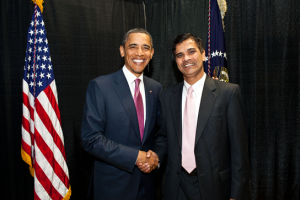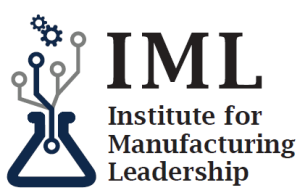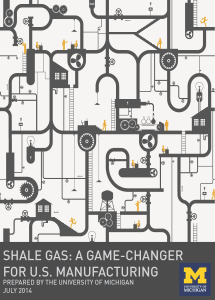The University of Michigan is the home of the Institute for Manufacturing Leadership (IML), a “think-and-do” tank (initiated by Professor Kota) focusing on enhancing U.S. manufacturing competitiveness through the advancement of innovations in policy, education, technology, and outreach. IML is the only such organization exclusively focused on advanced manufacturing, and addresses a complex range of issues, including: making existing industries more competitive; creating new industries through innovation; providing leadership in technology and advanced manufacturing; and enhancing economic and national security. The IML’s Faculty Council includes over 50 experts across the UM campus representing a diversity of disciplines and the Institute for Social Research.
The IML launched a public private stakeholders’ symposia series in 2014 to convene thought leaders from the public and private sector to focus on an emerging technology and identify initiatives and investments needed to scale and anchor manufacturing in the U.S. The first symposium of this series was “Shale Gas: A Game Changer for American Manufacturing” convened at the National Press Club in Washington, DC. Senior leaders representing industry (chemical, steel, glass, and paper), industry associations, Chamber of Commerce, Business Roundtable, Environmental Defense Fund, DOE Energy Policy director, the White House (OSTP), senior congressional staff, etc., discussed the issues and made five recommendations (two of which are already being implemented).
A report including the recommendations was issued in three months, and the IML was invited to brief the U.S. House and the Senate Energy Committees and the White House. Bloomberg Business Week said ‘The value of the University of Michigan report is that it takes to heart both the public’s concerns about shale gas and economic benefits and offers a well-thought-out road map for moving forward that attempts to balance the two.” This is a good example of the convening power and the intense focus on emerging technologies and advanced manufacturing work being carried out (since 2013) by the IML.

The University of Michigan was instrumental in the creation of President Obama’s Advanced Manufacturing Partnership (AMP) program. Dr. Sridhar Kota, Professor of Mechanical Engineering at the University, served for three years in the White House Office of Science and Technology Policy (OSTP) as the first Assistant Director for Advanced Manufacturing. In this role, he coordinated advanced manufacturing research and development, devised policy recommendations and strategies to enhance U.S. competitiveness. Kota’s primary contribution is making the case for establishing national manufacturing innovation institutes. He initiated and championed the establishment of both the Advanced Manufacturing Partnership and the Manufacturing Innovation Institutes. In June 2011, the University of Michigan was one of six universities selected to represent higher education in the AMP, and hosted the final regional meeting of the AMP Steering Committee.
| “Professor Kota has brought clear vision around advanced manufacturing and played a key role in shaping the nation’s program to revitalize this critical sector of our economy.” – Dr. Eric Lander, PCAST co-chair and Director of Broad Institute of MIT and Harvard. |
| “The Advanced Manufacturing Initiative is a direct outgrowth of the intellectual leadership Professor Kota provided to the PCAST. The nation owes him a debt of gratitude for his dedication and hard work.” – Prof. Rosina Bierbaum, PCAST member. |
In addition, Kota initiated and launched other national programs, including the establishment of National Science and Technology Council (NSTC) on Advanced Manufacturing (2011), National Robotics Initiative (June 2011), Connecting American Manufacturers to Defense Needs (April 2012), and the National Design Engineering and Manufacturing Consortium (March 2011) to democratize the use of modeling and simulation tools by the small and medium sized manufacturers. Furthermore, Kota also served as the advisor to Clinton Global Initiative (CGI-America) Advanced Manufacturing Working Group in 2012 – 2013. In this role, he helped launch the National Supply Chain Network Initiative (NSCI) — led by Global Foundries and the University of Michigan—which helped small- and medium-sized manufacturers connect with large manufacturers as suppliers. Kota also gave numerous keynote addresses at national meetings and authored blog posts on Innovation and Advanced Manufacturing during and after his tenure the White House and is widely quoted in popular press.
The Ford School’s Science, Technology, and Public Policy (STPP) Program seeks to improve understanding, analysis, and intervention in science and technology policymaking. It approaches these issues from two perspectives:
- Science and Technology for Policy: How science and technology are used to develop and affect public policies in a wide range of domains such as national security, public health, economic competitiveness, and environmental sustainability.
- Policy for Science and Technology: How policies are developed to promote beneficial scientific and technological development at the international, national, state, and local levels, such as the allocation of research funding and regulation of new research and technologies.



